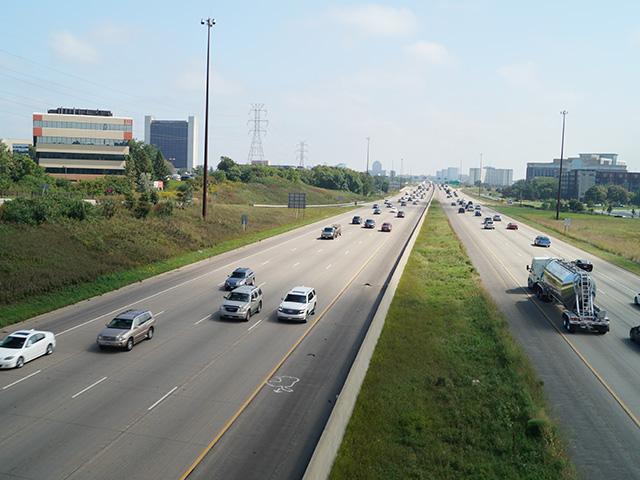Farmers Sue Minnesota on Zero Emissions
Minnesota Ag Interests Sue State on Adoption of California Zero-Emission Mandate
LINCOLN, Neb. (DTN) -- Agriculture, biofuels and convenience store groups allege the state of Minnesota violated the Constitution and federal law in adopting California's zero-emissions vehicles mandate, in a new lawsuit filed in federal court Monday.
California regulators drew a lot of attention when the California Air Resources Board approved a rule to require 100% of new light- and medium-duty vehicles sold in the state to be zero-emission vehicles by 2035.
In 2021, Minnesota adopted California's emissions standards to force automakers to make more zero-emission electric vehicles available to dealers beginning with model year 2025.
The lawsuit filed in U.S. District Court for the District of Minnesota by the Minnesota Soybean Growers Association, the Clean Fuels Development Coalition, ethanol plant developer ICM Inc., the National Association of Convenience Stores, and the Minnesota Service Station and Convenience Store Association, alleges the scheme violates the Constitution's equal sovereignty doctrine because it grants California a "greater degree" of sovereignty and capacity for self-government than all other states.
Bob Worth, president of the Minnesota Soybean Growers Association, said in a news release that soybean farmers in the state eventually will lose their biodiesel market if the state rules stand.
"Having Minnesota blindly follow California's rules gives up our ability to make our own decisions and would sabotage our own growers and producers of liquid fuels in the heartland," he said. "Minnesota consumers know better than California politicians what is best for their own lives."
In Minnesota, about $1.7 billion of the state's gross domestic product comes from the biodiesel industry, and biodiesel supports nearly 5,400 jobs in the state and 65,000 jobs in the U.S., according to the MSGA. Every 100 million gallons of production supports about 3,200 jobs, the group said, and biodiesel adds more than $1 to every bushel of soybeans.
P[L1] D[0x0] M[300x250] OOP[F] ADUNIT[] T[]
"With profit margins being so close, if we lose our biodiesel market, it would be a serious matter for soybean farmers to face," Worth said.
The lawsuit contends the federal Energy Policy and Conservation Act, or EPCA, creates a uniform national standard for vehicle fuel efficiency and prohibits states from adopting policies on federal fuel-economy standards.
EPCA says that a "State or a political subdivision of a State" cannot "adopt or enforce a law or regulation related to fuel economy standards or average fuel economy standards."
The groups argue in the lawsuit that in EPCA, Congress disallowed the National Highway Safety Administration from considering the fuel economy of vehicles that run on "alternative fuels" (such as electricity) in setting fuel-economy standards.
The suit also challenges Congress' decision to grant only California authority to adopt its own motor-vehicle emission standards different from those set by the U.S. government.
The Minnesota Pollution Control Agency issued new rules governing carbon-dioxide emissions. The rules require automakers to increase fuel economy in their fleets. The rules also mandate a sales quota on zero-emissions vehicles.
"Though these new rules will apply in Minnesota, imposing considerable costs on nearly every facet of the transportation industry and citizens across the state, neither the Minnesota Legislature nor MPCA had any hand in drafting them," the lawsuit said.
"Instead, MPCA 'incorporated by reference' over 45 provisions of the California code of regulations that regulate vehicle emissions, simply noting that the term 'Minnesota' should be 'substituted' for 'California.' Federal law and the Constitution stand in the way of this scheme. In short, state regulations of tailpipe carbon-dioxide emissions are not just 'related to' fuel-economy standards -- they are a de facto regulation of fuel economy. As such, they are expressly preempted by EPCA."
Last year, 17 states, agriculture and fuel interests sued the EPA, alleging the agency's March 2022 decision to reinstate California's legal authority to implement zero-emissions vehicle sales mandate and greenhouse gas emissions standards as a backdoor way to move the entire country away from gasoline-powered vehicles. That case is pending in the U.S. Court of Appeals for the District of Columbia Circuit, https://www.dtnpf.com/….
On March 9, 2022, EPA Administrator Michael Regan announced the agency rescinded a Trump administration action turning down California's request.
Since then, 17 states and the District of Columbia have adopted California's greenhouse-gas emissions standards and zero-emissions-vehicle mandate.
For the first time in 2005, California sought a waiver from the EPA to establish its own emissions standards for greenhouse gases. EPA denied that request in 2008, arguing the Clean Air Act does not authorize California to tackle national and international emissions problems.
The agency changed course under a new administration, granting California the waiver in 2013. The EPA again withdrew the waiver in 2019.
Todd Neeley can be reached at todd.neeley@dtn.com
Follow him on Twitter @DTNeeley
(c) Copyright 2023 DTN, LLC. All rights reserved.




